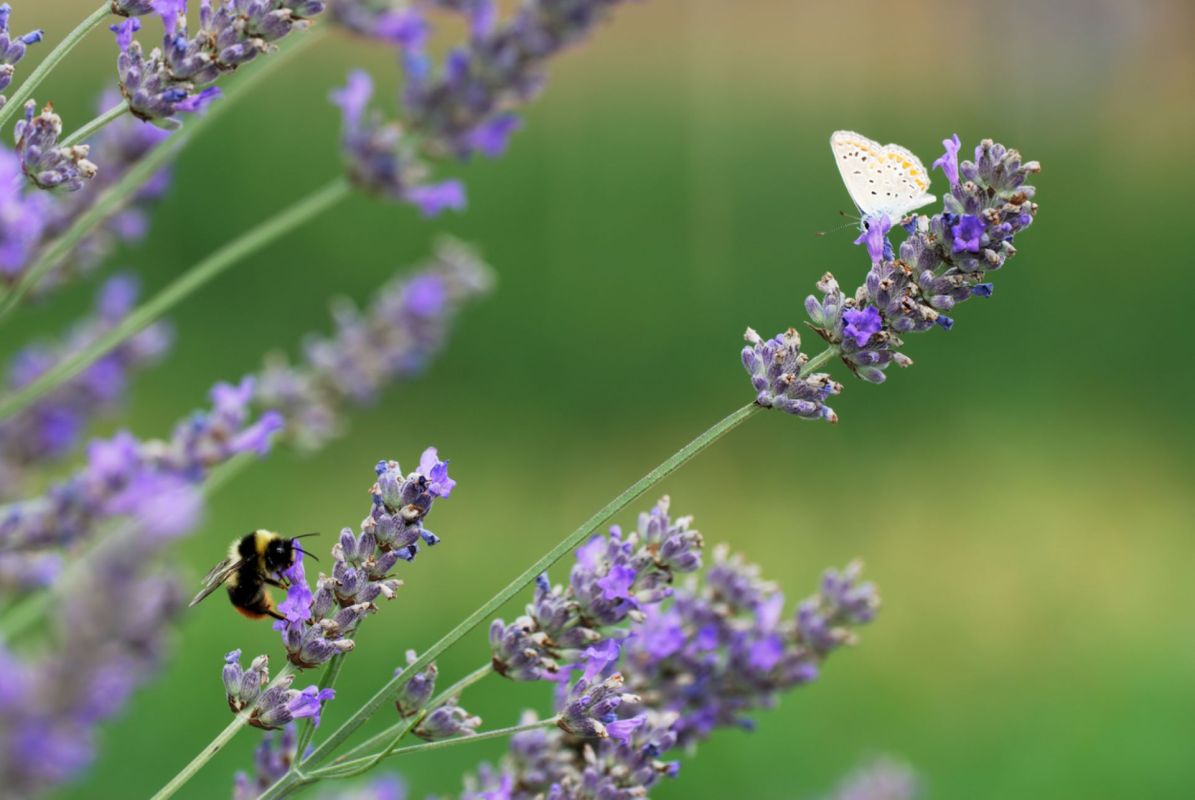Adding native plants to a garden can be a great way to encourage the presence of pollinators, which are vital for a healthy ecosystem. But after planting Common rock-rose in their garden in Stirlingshire, Scotland, one gardener welcomed a creature they didn't expect.
Despite being common in the area over a hundred years ago, the Northern Brown Argus butterfly was thought to be extinct in the region.
Incredibly, the green-thumbed genius found one in their garden, and hopes were sparked for the discovery of more.
Following a search from Butterfly Conservation volunteers and members of The Future Forest Company, other small colonies were found in the hills of the Dumyat Estate in Blairlogie.
Northern Brown Argus - Latterbarrow, Cumbria@BC_Cumbria @savebutterflies pic.twitter.com/ATG2JHBIP2
— Wayne NSL Butterflies (@nslbutterflies) June 12, 2020
"This is a once-in-a-lifetime event, the re-emergence of a previously locally extinct species in its former habitat is incredibly special and rare," conservation manager David Hill from Butterfly Conservation said in a statement. "We're committed to protecting the Northern Brown Argus and helping it to thrive, with hopes that it will spread across its former home and stretch right across the Ochill Hills once again."
The decline of the species in the area has been attributed to habitat loss from overgrazing, and The State of the UK's Butterflies Report from 2022 said the population of the Northern Brown Argus had dwindled by as much as 58% between 1979 and 2019.
But our Stirlingshire gardener might have just encouraged a renewed effort to bring the species back to the region, with Butterfly Conservation and The Future Forest Company aiming to plant more Common rock-rose, which is a desired plant species for the Northern Brown Argus' caterpillars.
"With the help of volunteers, The Future Forest Company is starting to clear the invasive scrub that is threatening the Common rock-rose plants which this beautiful butterfly depends on, however, more conservation work is required to ensure the long-term survival of this species at Dumyat," Lindsay Mackinlay, the head of biodiversity for The Future Forest Company, said.
"We have a biodiversity crisis on our hands and everyone can play a part in reversing this, including the private sector."
It just goes to show the difference changing the way you landscape can make. In addition to bringing a vast array of stunning — and sometimes rare — species to a green space, native flowers are typically more suited to local temperatures and require less maintenance and water than common monoculture lawns.
Join our free newsletter for cool news and cool tips that make it easy to help yourself while helping the planet.









